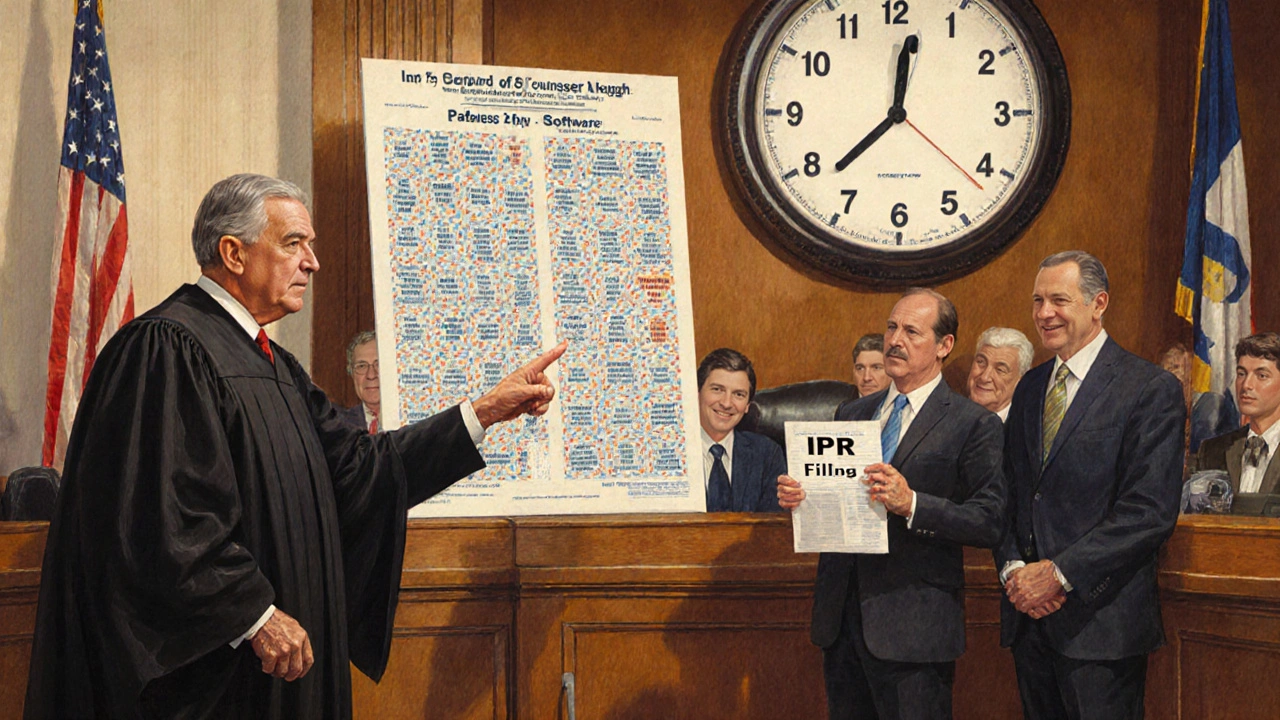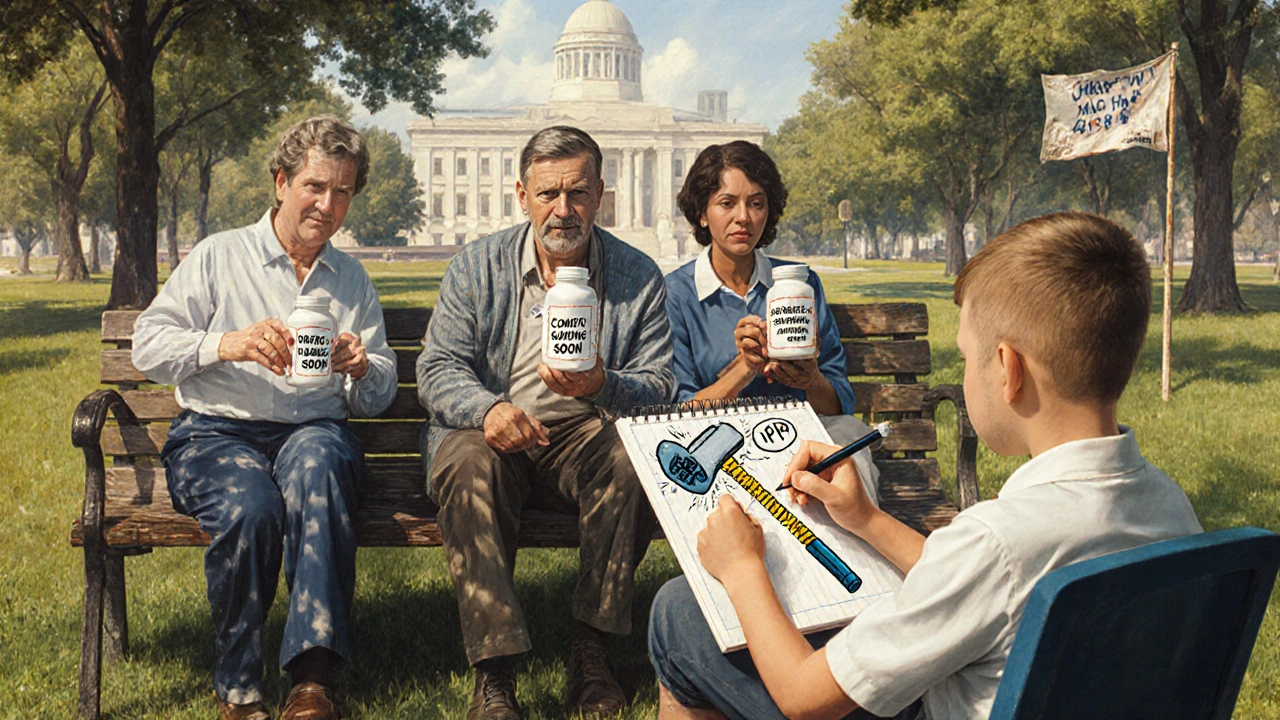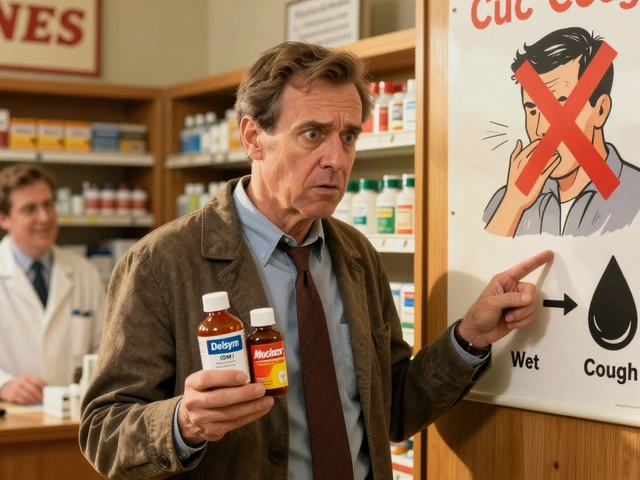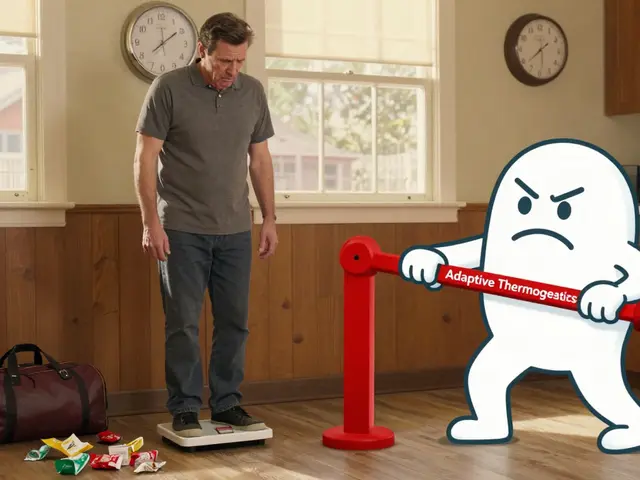When a brand-name drug’s patent expires, you’d expect generic versions to hit the market quickly-cheaper, just as effective, and available to patients who need them. But in reality, it’s not that simple. In 2024, the average time from a brand drug’s patent expiration to the first generic entry was 28 months. That’s more than two years of patients paying higher prices while legal battles drag on. This isn’t a glitch in the system-it’s how the system was designed to work, and it’s being exploited.
The Hatch-Waxman Act: A Deal That Broke Down
The Drug Price Competition and Patent Term Restoration Act of 1984, better known as the Hatch-Waxman Act, was meant to balance innovation and access. It gave brand-name drugmakers extra patent time to make up for delays in FDA approval. In return, it created a fast-track path for generic manufacturers to bring cheaper versions to market. That path? The Abbreviated New Drug Application, or ANDA. Here’s where it gets tricky. Generic companies can file what’s called a Paragraph IV certification. That’s their legal notice saying: “Your patent is invalid, or we don’t infringe it.” Once they do that, the brand-name company has 45 days to sue. If they do, the FDA can’t approve the generic for up to 30 months-no matter how clear the case is. That’s not a trial delay. It’s a regulatory pause built into the law. This wasn’t supposed to be a delay tactic. But over time, it became one.The Orange Book: A Legal Weapon in Plain Sight
The FDA’s Orange Book is supposed to be a simple list: which patents cover which drugs? But it’s become a battleground. Brand companies list patents that don’t even relate to the actual medicine. Take ProAir® HFA, an asthma inhaler. Teva filed a generic version. The brand company, Merck, listed six patents-not on the albuterol sulfate drug, but on the dose counter inside the inhaler. In early 2025, Judge Chesler in New Jersey ruled those patents didn’t qualify. The law says only patents covering the drug itself, its formulation, use, or manufacturing can be listed. A dose counter? That’s hardware. Not the drug. That ruling was a wake-up call. Skadden’s analysis estimates 15-20% of patents in the Orange Book might be invalid under this standard. But those patents are still being used to block generics. The Association for Accessible Medicines found that brand companies often file patents on packaging, delivery devices, or even software used in the inhaler-anything to stretch exclusivity.Serial Litigation: The 10-Year Delay Strategy
It’s not enough to file one patent. Some companies file dozens. Eliquis, the blood thinner, has 67 patents. Semaglutide (Ozempic, Wegovy) has 152. Oncology drugs? On average, 237 patents per product. That’s not innovation-it’s a patent thicket. When one patent expires or gets invalidated, another one pops up. Generic companies spend years fighting one case after another. Some drugs have seen delays of 7 to 10 years past their original patent expiration. That’s not a legal process. That’s a business strategy. The FTC has flagged this. In 2024 alone, they challenged over 300 improper Orange Book listings. In May 2025, they sent warning letters to 200 more patents across 17 drugs, naming big names like Teva and Amgen. Their message: stop gaming the system.
Where Lawsuits Are Fought: The Eastern District of Texas
Not all courts are created equal. Since the TC Heartland decision in 2017 shifted patent litigation away from plaintiff-friendly venues, the Eastern District of Texas quietly reclaimed its spot as the top court for pharmaceutical cases. In 2024, 38% of all patent suits were filed there. That’s more than double the Western District of Texas and more than twice the number in Delaware. Why? Because judges there are experienced in patent law. Because juries are perceived as sympathetic to patent holders. Because procedures favor the plaintiff. Generic companies hate it. Brand companies love it. It’s the legal equivalent of choosing your home field advantage-and it’s working.Settlements: Are They Helping or Hurting?
You’ve probably heard of “pay-for-delay” settlements-where brand companies pay generics to stay off the market. The FTC calls them anticompetitive. Courts have blocked them. But here’s the twist: not all settlements are bad. The IQVIA Institute found that when brand and generic companies settle, generics enter the market five years earlier on average than if they went to trial. Why? Because trials are expensive and risky. A generic company might spend $50 million on litigation and still lose. Settling means they get a date to launch-sometimes even before the patent expires. John T. O’Donnell, an industry analyst, put it bluntly: “If you limit a generic manufacturer’s ability to settle, that manufacturer does not settle fewer cases-it submits fewer Paragraph IV ANDAs.” Translation: if you scare them off settlements, they won’t even try to challenge the patents. The FTC disagrees. They argue that even “early entry” settlements still delay competition. But the data shows that without settlements, many generics never enter at all.
What’s Changing? IPRs, Perjury, and New Rules
Generic manufacturers are fighting back with inter partes review (IPR) at the Patent Trial and Appeal Board. These are administrative challenges to patents-faster and cheaper than court. IPR filings against pharma patents jumped 47% from 2023 to 2024. But the Supreme Court’s April 2025 decision in Smith & Nephew v. Arthrex made it harder. Now, only companies that are actually planning to sell a generic can challenge a patent. That’s a win for brand companies. The FDA is stepping in, too. New rules are coming in Q2 2026. Brand companies will have to certify under penalty of perjury that every patent they list in the Orange Book meets the legal standard. No more hiding behind packaging patents.The Real Cost: $13.9 Billion a Year
This isn’t just about legal technicalities. It’s about money-and lives. The FTC estimates improper patent listings delay generic entry for about 1,000 drugs every year. That costs the U.S. healthcare system $13.9 billion annually. Patients pay more. Insurers pay more. Taxpayers pay more. Imagine a diabetic who can’t afford insulin because the brand company is still blocking generics with a patent on the pen’s button. Or a cancer patient waiting for a cheaper version of a drug that’s been off-patent for five years. That’s not hypothetical. That’s happening right now.What’s Next?
The system is under pressure. Courts are starting to strike down improper listings. Regulators are cracking down. Generic manufacturers are using new tools like IPRs. But the incentives are still skewed. Brand companies profit from delays. Generic companies face huge risks to enter. The real solution? Simplify the rules. Remove patents that don’t belong in the Orange Book. Limit the 30-month stay to only the first challenge. And stop letting patent thickets become legal barriers to affordable medicine. Until then, patients will keep paying more-while lawyers and pharmaceutical companies settle their battles in courtrooms.What is a Paragraph IV certification?
A Paragraph IV certification is a legal statement filed by a generic drug company with the FDA, declaring that a brand-name drug’s patent is either invalid or won’t be infringed by the generic version. This triggers a 30-month stay on FDA approval if the brand company sues within 45 days.
What is the Orange Book?
The Orange Book, officially called Approved Drug Products with Therapeutic Equivalence Evaluations, is a public list published by the FDA that includes patents associated with brand-name drugs. Only patents covering the active ingredient, formulation, method of use, or manufacturing process are legally allowed to be listed.
Why do brand companies list patents on inhalers or packaging?
They do it to extend market exclusivity. Even though the law only allows patents on the drug itself or its direct use, some companies list patents on delivery devices, packaging, or software. These aren’t legally valid, but they still trigger litigation stays, delaying generic entry. Courts are starting to strike these down, as seen in the 2025 Teva vs. Amneal case.
Are pay-for-delay settlements illegal?
Cash payments to delay generic entry are illegal under antitrust law and have been blocked by courts. But settlements that include early entry dates-even before patent expiration-are legal and common. The FTC opposes them, but industry data shows they often speed up access to generics compared to going to trial.
Why is the Eastern District of Texas so popular for patent cases?
It’s known for experienced patent judges, faster trial schedules, and juries that tend to favor patent holders. After the TC Heartland decision moved cases away from other plaintiff-friendly districts, the Eastern District of Texas became the top venue again in 2024, handling 38% of all pharmaceutical patent lawsuits.
How many patents does a typical drug have?
The average small molecule drug has about 37 patents. But complex drugs like biologics can have 78 or more. Oncology drugs average 237 patents per product. Eliquis has 67, and semaglutide products have 152 collectively. This creates legal barriers that delay generic competition for years.
What’s the impact on drug prices?
Delays in generic entry cost the U.S. healthcare system an estimated $13.9 billion per year. When generics enter, prices drop by 80-90%. But if litigation delays entry by 2-5 years, patients pay brand prices much longer than they should.






Comments
Andrew Forthmuller
10/Nov/2025So generics get stuck in court for years because some company patented the damn button on an inhaler? That’s insane.
Nicole M
10/Nov/2025I had to pay $500 for my dad’s diabetes meds last month. Meanwhile, the generic’s been ready for 3 years. This isn’t business-it’s exploitation.
manish kumar
10/Nov/2025As someone from India where generics are lifelines, this is heartbreaking. The US system is supposed to lead in innovation, but instead it’s perfected legal obstruction. When a drug’s patent expires, the medicine should be affordable-not locked behind 152 patents and a courtroom marathon. The Orange Book abuse is a joke, and the Eastern District of Texas is just a playground for pharma giants. IPRs are the only real hope now, but even that’s being neutered by the Supreme Court. We need real reform, not more paperwork.
Charles Lewis
10/Nov/2025It is imperative to recognize that the Hatch-Waxman Act, while initially conceived as a pragmatic compromise between innovation and accessibility, has been systematically subverted by strategic litigation and regulatory manipulation. The 30-month stay provision, intended as a temporary buffer, has evolved into a structural barrier that permits patent holders to extend monopolies far beyond the spirit, and often the letter, of the law. Furthermore, the proliferation of non-substantive patents-those covering delivery mechanisms, packaging, or software interfaces-constitutes a form of legal rent-seeking that directly undermines public health objectives. The FDA’s forthcoming perjury requirement for Orange Book listings is a necessary, albeit belated, corrective measure. Without enforceable accountability, these practices will continue to extract an annual cost of $13.9 billion from the healthcare system, disproportionately affecting low-income and elderly populations who rely on affordable therapeutics.
Samantha Wade
10/Nov/2025The data is unequivocal: when generics are blocked, patients die waiting. The FTC’s findings aren’t statistics-they’re obituaries. Every patent listed on a dose counter, every ‘pay-for-delay’ settlement disguised as ‘early entry,’ every lawsuit filed in Texas because the judge ‘understands patents’-these aren’t legal maneuvers. They’re calculated acts of medical apartheid. The system isn’t broken. It was designed this way. And until we treat pharmaceutical patents like public health infrastructure-not corporate property-we’re complicit in the suffering. IPRs are a start, but we need to defund the litigation machine entirely. Let’s make it illegal to sue over anything that isn’t the active ingredient. Done.
Renee Ruth
10/Nov/2025Oh, so now the ‘innovators’ are the villains? Please. Without patents, there’d be no new drugs at all. You think Big Pharma sits around inventing miracle cures out of the goodness of their hearts? They risk billions. And now you want to strip them of every tool to protect that investment? The generics are just vultures waiting for the carcass. And don’t even get me started on how ‘pay-for-delay’ is somehow the bad guy when it gets drugs to market faster than a 7-year lawsuit. The real problem? You people want free medicine and think innovation should just magically happen.
Elizabeth Buján
10/Nov/2025i just keep thinking about my friend who had to choose between her insulin and her rent. and then i think about how some lawyer in texas got paid $2 million to argue that a button on an inhaler is a patent. it’s not about law anymore. it’s about who gets to live and who gets to profit. we’ve turned medicine into a game where the rules are written by people who’ll never need it. and the worst part? we’re all just watching. i don’t know how to fix it. but i know we can’t keep pretending this is fair.
vanessa k
10/Nov/2025Charles, your point about Hatch-Waxman being twisted is spot on-but I think you’re missing the human cost. This isn’t abstract legal theory. It’s a 72-year-old woman in Ohio who can’t afford her blood thinner because the brand company filed 67 patents on the same 5mg pill. And Andrew, you’re right-it’s insane. But what’s worse is that we’ve normalized it. We scroll past this stuff like it’s just another headline. I’m not saying we scrap patents. I’m saying we need to strip away the junk ones. The FDA’s new perjury rule? That’s the first real step in years. Let’s hold them accountable. Not with more lawsuits. With truth.